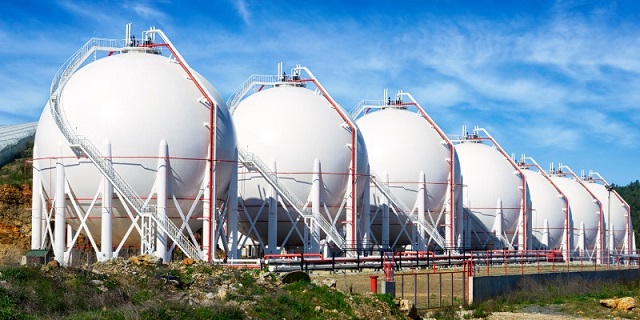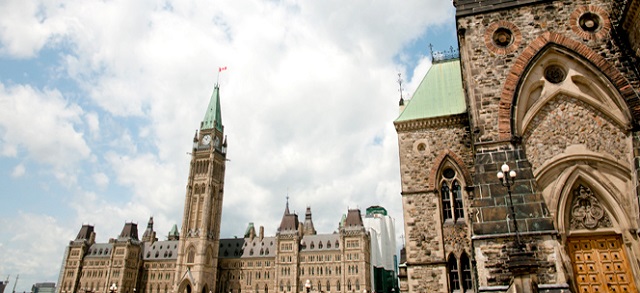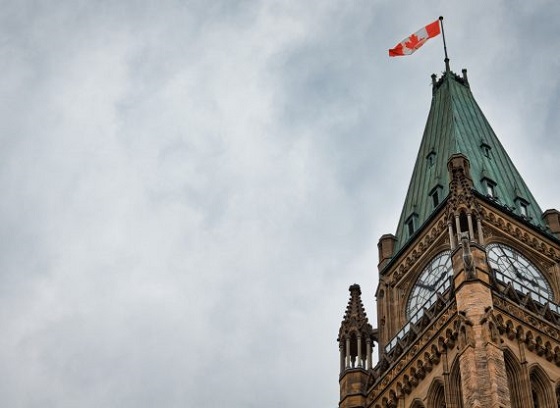Energy
U.S. halt on LNG exports presents new opportunity for Canada

From the Fraser Institute
By Julio Mejía and Elmira Aliakbari
The Biden administration recently paused the approval of permits for liquefied natural gas (LNG) exports, which will force U.S. allies to explore alternative sources of LNG, opening the door for Canada. In fact, if Canadian policymakers remove certain regulatory hurdles, they can help position Canada as a leading global provider of clean and reliable natural gas while also helping create jobs and prosperity in British Columbia, Alberta and beyond.
Following Putin’s invasion of Ukraine, President Biden committed to supplying steady LNG to the European Union, aiming to reduce reliance on Russian gas. By 2023, the United States had become the world’s top LNG exporter, with several European countries importing more than half of America’s LNG exports. However, President Biden also pledged to transition the U.S. away from fossil fuels so he’s paused LNG exports to appease his environmentalist constituency ahead of the upcoming U.S. presidential election.
But this pause comes at a crucial time for European countries grappling with energy shortages and rising prices. Last year, energy-intensive industries in Europe scaled back or halted production amid soaring energy prices, and Germany, Europe’s largest economy, narrowly avoided a recession caused by energy supply shortages. To keep the lights on, European countries have been forced to revert to coal-fired power plants, an energy source that contributes more CO2 emissions than natural gas.
Following the U.S. decision, European and Asian countries (including China) are exploring alternative LNG suppliers, again creating a potential void that Canada could fill. Japan and Germany have already turned to Canada.
Canada’s vast natural resources hold the potential to make a significant positive impact on global energy security, reliability, and emissions reduction by reducing reliance on coal. Despite possessing “the most prolific and lower-cost North American gas resources,” as emphasized by McKinsey’s recent report, development in Canada has encountered challenges largely due to government regulatory barriers. Presently, Canada lacks any operational LNG export terminals, unlike the U.S., which has 27 such facilities. The LNG Canada development in B.C. is slated to become Canada’s first operational facility, expected to begin exporting by 2025.
The absence of LNG export infrastructure in Canada has led domestic natural gas producers to depend on U.S. LNG facilities for exporting. However, with the recent halt on approving new LNG projects south of the border, there’s an urgent need for Canada to establish its own infrastructure if we’re going to seize this opportunity to be a global LNG supplier.
Forecasts indicate steady and growing global demand for LNG. McKinsey’s recent report anticipates an annual increase in global LNG demand of 1.5 per cent to 3 per cent to 2035. And according to the latest report by the International Energy Agency (IEA), limited new LNG production means supply will remain tight.
Despite promising opportunities, various government initiatives including CleanBC (the B.C. government’s plan to reduce greenhouse gas emissions,) the Trudeau government’s emissions caps on the oil and gas sector, and federal Bill C-69 (which added more red tape and complexity to the assessment process for major energy projects) have created uncertainty and deterred, if not outright prohibited, investment in the sector.
Canada has an opportunity to provide clean and reliable natural gas to our allies, help improve the world’s energy security and reduce global greenhouse gas emissions. The federal and provincial governments must remove regulatory barriers to allow for the needed infrastructure and investment in the LNG sector, which will also provide jobs and prosperity here at home.
Authors:
Daily Caller
UN Chief Rages Against Dying Of Climate Alarm Light


From the Daily Caller News Foundation
The light of the global climate alarm movement has faded throughout 2025, as even narrative-pushing luminaries like Bill Gates have begun admitting. But that doesn’t mean the bitter clingers to the net-zero by 2050 dogma will go away quietly. No one serves more ably as the poster child of this resistance to reality than U.N. chief Antonio Guterres, who is preparing to host the UN’s annual climate conference, COP30, in Brazil on Nov. 10.
In a speech on Monday, Guterres echoed poet Dylan Thomas’s advice to aging men and women in his famed poem, “Do not go gentle into that good night:”
Do not go gentle into that good night,
Old age should burn and rave at close of day;
Rage, rage against the dying of the light.
Dear Readers:
As a nonprofit, we are dependent on the generosity of our readers.
Please consider making a small donation of any amount here.
Thank you!
Though wise men at their end know dark is right,
Because their words had forked no lightning they
Do not go gentle into that good night.
Seeing that his own words have “forked no lightning,” Guterres raged, raged against the dying of the climate alarm light.
“Governments must arrive at the upcoming COP30 meeting in Brazil with concrete plans to slash their own emissions over the next decade while also delivering climate justice to those on the front lines of a crisis they did little to cause,” Guterres demanded, adding, “Just look at Jamaica.”
Yes, because, as everyone must assuredly know, the Earth has never produced major hurricanes in the past, so it must be the all-powerful climate change bogeyman that produced this major storm at the end of an unusually slow Atlantic hurricane season.
Actually, Guterres’ order to all national governments to arrive in Belem, Brazil outfitted with aspirational plans to meet the net-zero illusion, which everyone knows can and will never be met, helps explain why President Donald Trump will not be sending an official U.S. delegation. Trump has repeatedly made clear – most recently during his September speech before the U.N. General Assembly – that he views the entire climate change agenda as a huge scam. Why waste taxpayer money in pursuit of a fantasy when he’s had so much success pursuing a more productive agenda via direct negotiations with national leaders around the world?
“The Green New Scam would have killed America if President Trump had not been elected to implement his commonsense energy agenda…focused on utilizing the liquid gold under our feet to strengthen our grid stability and drive down costs for American families and businesses,” Taylor Rogers, a White House spokeswoman, said in a statement to the Guardian. “President Trump will not jeopardize our country’s economic and national security to pursue vague climate goals that are killing other countries,” she added.
The Guardian claims that Rogers’s use of the word “scam” refers to the Green New Deal policies pursued by Joe Biden. But that’s only part of it: The President views the entire net-zero project as a global scam designed to support a variety of wealth redistribution schemes and give momentum to the increasingly authoritarian forms of government we currently see cracking down in formerly free democracies like the U.K., Canada, Germany, France, Australia and other western developed nations.
Trump’s focused efforts on reversing vast swaths of Biden’s destructive agenda is undoing 16 years of command-and-control regulatory schemes implemented by the federal government. The resulting elimination of Inflation Reduction Act subsidies is already slowing the growth of the electric vehicles industry and impacting the rise of wind and solar generation as well.
But the impacts are international, too, as developing nations across the world shift direction to be able to do business with the world’s most powerful economy and developed nations in Europe and elsewhere grudgingly strive to remain competitive. Gates provided a clear wake-up call highlighting this global trend with his sudden departure from climate alarmist orthodoxy and its dogmatic narratives with his shift in rhetoric and planned investments laid out in last week’s long blog post.
Guterres, as the titular leader of the climate movement’s center of globalist messaging, sees his perch under assault and responded with a rhetorical effort to reassert his authority. We can expect the secretary general to keep raging as his influence wanes and he is replaced by someone whose own words might fork some lightning.
David Blackmon is an energy writer and consultant based in Texas. He spent 40 years in the oil and gas business, where he specialized in public policy and communications.
Daily Caller
US Eating Canada’s Lunch While Liberals Stall – Trump Admin Announces Record-Shattering Energy Report


From the Daily Caller News Foundation
By Audrey Streb
The Department of Energy (DOE) touted a report on Wednesday which states that America broke records in liquefied natural gas (LNG) exports.
The U.S. became the first country to export over 10 million metric tonnes of LNG in one month in October, Reuters reported on Monday, citing preliminary data from the financial firm LSEG. The DOE posted on X on Wednesday that “there are big opportunities ahead for U.S. natural gas” and has consistently championed LNG in a sharp departure from former President Joe Biden’s crackdown on the resource.
“The fact that America’s oil and gas industry was able to pass this stunning milestone is impressive considering all the roadblocks to progress which were thrown up by the Biden administration,” David Blackmon, an energy and policy writer who spent 40 years in the oil and gas business, told the Daily Caller News Foundation. “It is a testament to both the resilience and innovative mindset of the industry and to the phenomenal wealth of America’s natural gas resource.”
Dear Readers:
As a nonprofit, we are dependent on the generosity of our readers.
Please consider making a small donation of any amount here.
Thank you!
🗣️RECORD BREAKING: For the first time, U.S. LNG exports are projected to surpass 10 million metric tons in a single month. There are big opportunities ahead for U.S. natural gas!
— U.S. Department of Energy (@ENERGY) November 5, 2025
Two facilities in Louisiana and Texas are responsible for the LNG export surge, according to Reuters. The U.S. LNG industry emerged as an energy sector giant in recent decades, with America now leading the world in LNG exports after being projected to be a net importer as late as 2010, according to S&P Global.
The Biden administration enacted a freeze on new LNG export permits and “intentionally buried a lot of data and released a skewed study to discredit the benefits of American LNG,” the DCNF previously reported. The environmental lobby applauded Biden’s January 2024 freeze on new LNG export terminals, though critics argued that the policy stalled investment, would not reduce emissions and undermined America’s global strategic interests.
In contrast, President Donald Trump sought opportunities to bolster LNG and reversed the new permit pause through a day-one executive order. Some energy policy experts told the DCNF that the reported milestone highlights the resiliency of the industry and the benefit of Trump’s “American energy dominance” agenda.
-

 Agriculture2 days ago
Agriculture2 days agoDanish Cows Collapsing Under Mandatory Methane-Reducing Additive
-

 Alberta2 days ago
Alberta2 days agoAlberta government’s plan will improve access to MRIs and CT scans
-

 Business2 days ago
Business2 days agoNo Jobs Clause: Liberals Under Fire Over Stellantis Deal in Fiery Committee Showdown
-

 Economy2 days ago
Economy2 days agoWelcome to the Energy Humanist Club! Bill Gates breaks the moral monopoly against fossil fuels
-

 Business1 day ago
Business1 day agoBudget 2025 continues to balloon spending and debt
-

 Censorship Industrial Complex1 day ago
Censorship Industrial Complex1 day agoHow the UK and Canada Are Leading the West’s Descent into Digital Authoritarianism
-

 Business1 day ago
Business1 day agoCapital Flight Signals No Confidence In Carney’s Agenda
-

 Business1 day ago
Business1 day agoFederal budget: Carney government posts largest deficit in Canadian history outside pandemic









